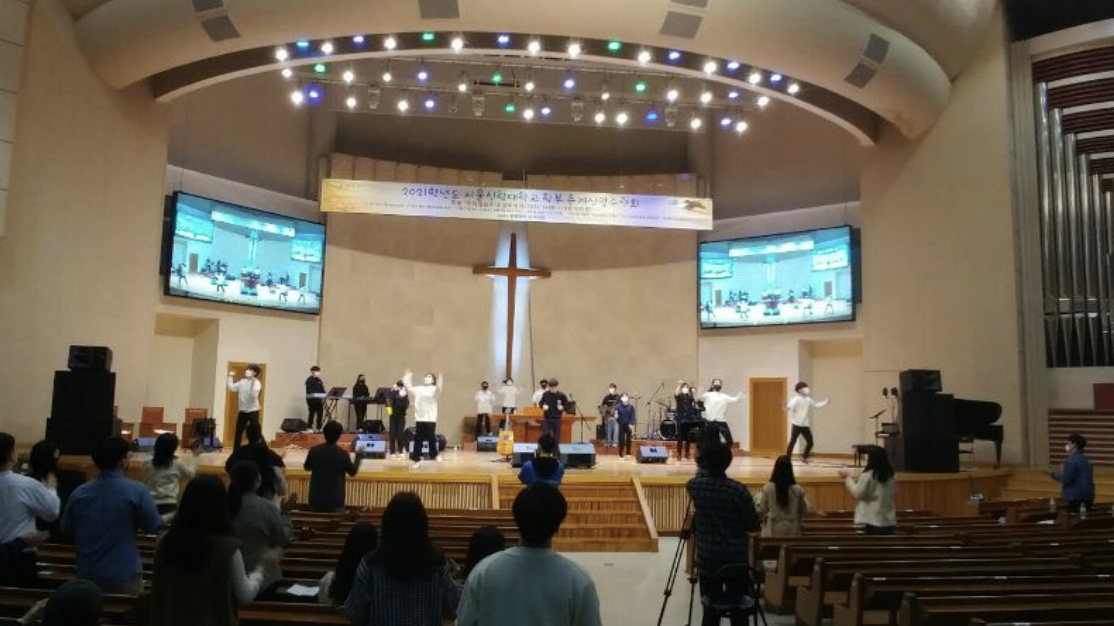When we think of court dramas, there are three types of characters: judge, lawyer, and prosecutor. And space where they endless debate is the court. Even if you don’t have to think deeply, the argument leads to fierce battles between the two sides. Eventually, the judgment changes depending on which side the judge is on by reviewing accurate data and evidence.
Court battles like this happen not only in the courts to judge right and wrong but also in our invisible mind. A scene like this also appears in the scene where Jesus makes the Last Supper with his disciples.
Jesus must have been in deep trouble as he broke the bread from the table and gave it to his disciples. And Judas, who will be selling Jesus in the same way, must have been there with a complicated heart. And Jesus spoke with such a complex feeling behind. “I tell you the truth, one of you is going to betray me(John 13:21).” And although Jesus did not point to Judas directly, these words were the first opportunity and warning given to Judas. So that Judas can stop what he is trying to do. And then Jesus spoke seriously, pointing out Judas exactly who was selling Jesus for the second warning. “It is the one to whom I will give this piece of bread when I dipped it in the dish(26).” And as soon as Judas took the bread, Satan entered into him(27).
When Jesus gave Judas two warnings, he had the opportunity to repent and turn around the wrong motives and evil thoughts in him. However, he eventually missed the opportunity and sold Jesus to the high priest.
However, what we look at carefully in this scene is that after Judas received the piece of bread from Jesus, Satan entered into him. Could this mean that Satan controlled Judas? No. More precisely, it is that Satan triggered him in the execution of the evil thoughts of Judas. If Judas had heard Jesus’ Words and felt remorse in his conscience, he would not have betrayed Jesus, but he listened to the voice of his thoughts, not the voice of his conscience, and practiced.
Here, we can see how accurately the apostle Paul sees through the inner character of humans. Paul says the humans have a conscience and testify to what is happening in the heart, and at the same time, human thoughts accuse and defend one another(Rom 2:15).” In other words, it describes the inside of man in three ways.
The first is the heart. The importance of this heart is mentioned more than 800 times in the Bible. Amazingly, only God can search our hearts, and only He can watch the depths of our hearts. The heart is at the center of the Christian’s spiritual life, and human will and intention are also clearly shown. The second inside is conscience. This conscience is the ability to respond to right and wrong in general, but even more so for Christians. The last inside is thought, and all human beings have free wills, allowing them to move their choices according to individual opinions and feelings and according to someone’s opinion.
The court battle mentioned at the very beginning is vivid in this part. Our heart is like the judge. No matter what case the lawyer and prosecutor have in constant debate, our conscience and thoughts often fight against each other. When our conscience drives our hearts, we choose the right path, but when our hearts follow our thoughts or feelings, it leads us in the opposite direction. That’s why we have to observe the inside of our hearts and decide what choices to make.
While walking with my husband, there was a situation where we encountered a big dog rushing in front of us. When a big dog without a leash stands in front of us and growls, it threatens us and tries to rush. At that moment, if we tremble with fear and run away, leaving the path we were trying to go, the dog will chase us to bite us. But my husband watched the dog and paused, saying, “I’m not afraid of you. I don’t even budge at your threat.” Then the dog’s owner called the name of the dog from a distance, and the dog ran to the owner.
Likewise, there are times when Satan stands on our path and hinders moving forward. Rather than trying to kill us, he threatens us and makes us go back and forth. But how should we react when standing in such a situation? Should we give up the path we were trying to retreat, as Satan expected, or should we continue on the way we were going to overcome the threat? Although he followed Jesus with good motives and intentions, Judas Iscariot chose a different path when he’ teaching was different from him. He had warnings and opportunities, but he did not turn back. And that determined his fate. Our choices also determine our destiny. Who is sitting in the seat of the heart? Do we hear the voice of his conscience or the voice of thoughts and emotions? It is also our choice.
@ Photo on Unsplash

